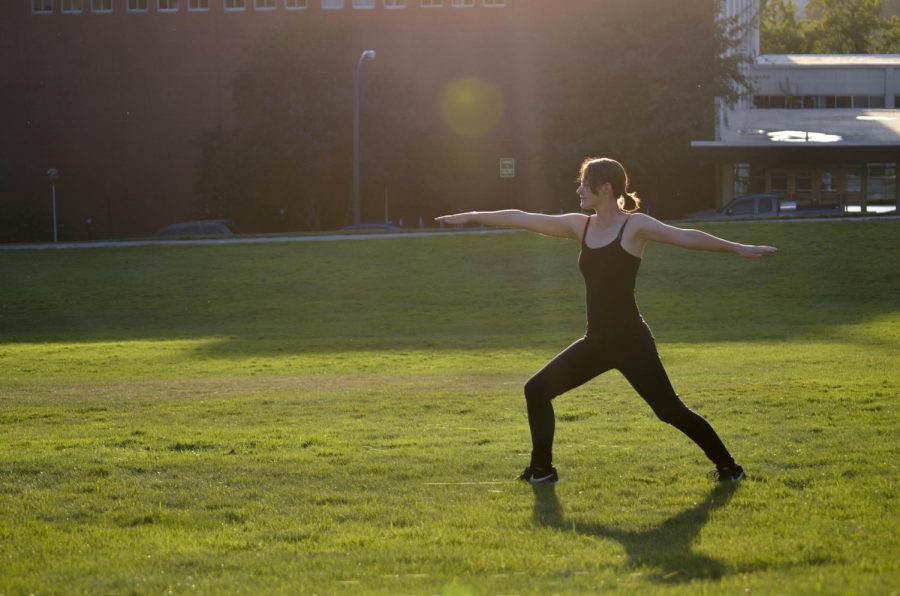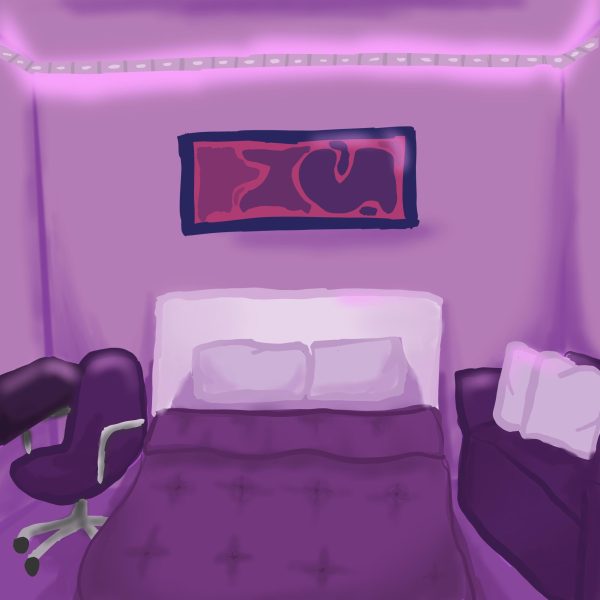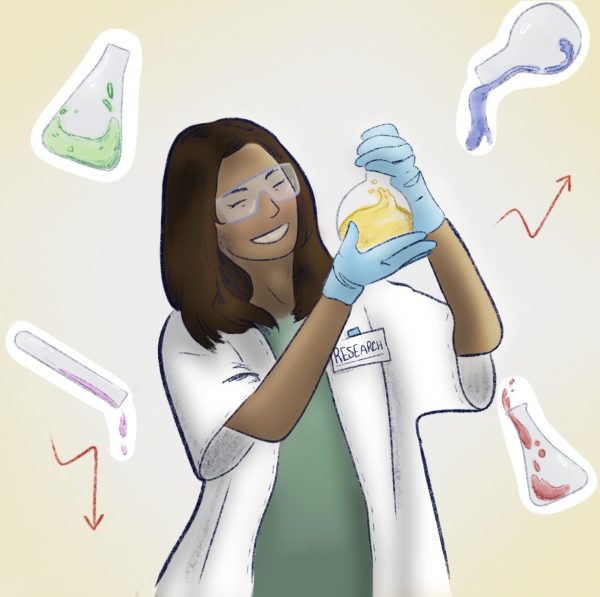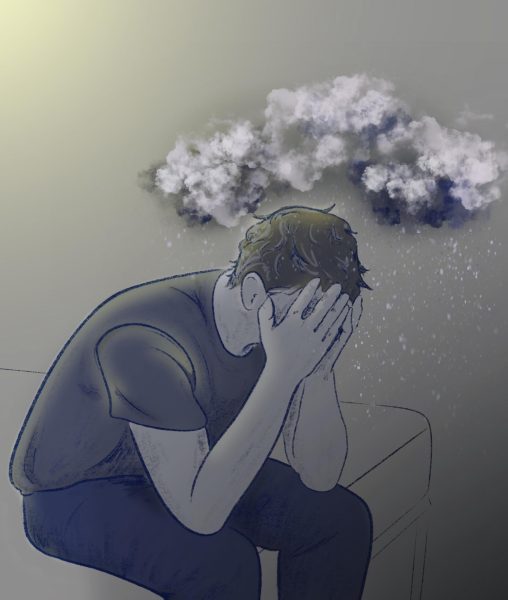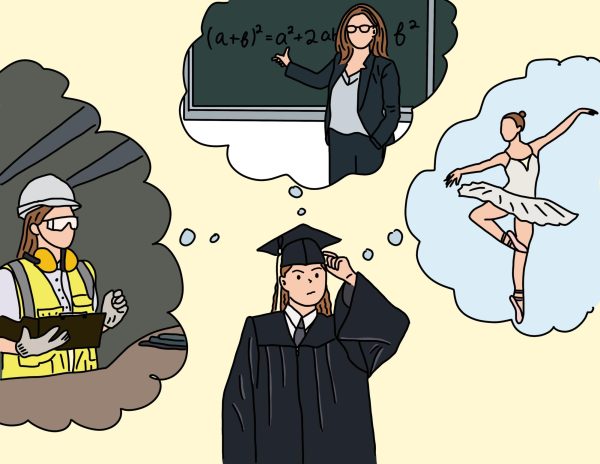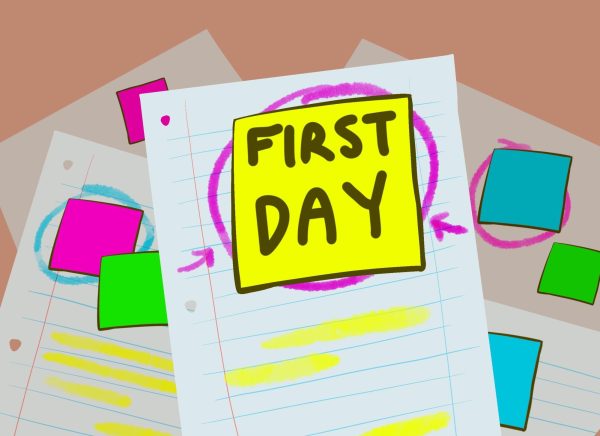Free your qi: Finding root cause for bad energy
Series on Chinese medicine plans to focus on structural, hormonal, emotional blocks in one’s life, health
PAIGE CAMPBELL | EVERGREEN PHOTO ILLUSTRATION
Even bad posture can cause tension in the body, which Chinese medicine would describe as a structural block.
September 19, 2018
Have you ever wondered what qi — pronounced like ‘chi’ — really is?
Qi is a central concept in traditional Chinese medicine. According to this philosophy, qi is one of many types of energy. When this energy is depleted, overactive or somehow unbalanced in parts of the body, it causes ailments.
So, is it affecting your health? If it is, how can you learn to move your qi to help your body heal? In this series on qi, we will look at several topics through the lens of energetic Chinese medicine.
I’ve listed four easy ways you can redirect and replenish your own qi for free. But before you start changing it, it will help to understand what it is and how it works.
One popular way to balance qi is with a trained acupuncturist. Acupuncture needles are meant to manipulate this energy. Liz Lee, an acupuncturist at Summit Therapy in Pullman, said qi sometimes stagnates.
“Not only do you need enough qi, but it needs to flow smoothly,” Lee said. “There are pathways that the qi travels in the body, like freeways in the body. Sometimes those pathways are blocked.”
Lee said qi could be blocked in many ways, usually caused by a structural or hormonal blockage. Headaches, for example, could have a structural cause like slumped posture. When you are often leaning forward, qi can get trapped in your neck, which can cause headaches.
A hormonal imbalance could cause headaches with menstruation, Lee said. This could be related to unbalanced qi in the liver. Symptoms of liver problems in Chinese medicine include irritability, anger and depression.
Laura Rose Lambert is an herbalist and acupuncturist at The Nest Birth & Wellness in Pullman. She said root causes can also be emotional, which she experienced firsthand.
Lambert said at one time, she had several patients who didn’t respond to treatments aimed at their diseases. But when Lambert decided to focus on these clients’ emotional issues, they finally saw progress with their physical symptoms.
It’s important to determine a root cause, because Chinese medicine practitioners will treat causes rather than symptoms, she said.
“So you can use the same treatment for different diseases, or different treatments for the same disease,” Lambert said. “It depends on the person.”
As we think about the relationship of qi and emotions, it’s important to consider its abstract nature.
“My main mentor told me ‘Laura, you’re OK at this because you’re totally comfortable with things that aren’t describable or knowable,’ ” she said. “Qi, that’s what it is. It’s the epitome of ineffable.”
Perceiving qi takes intuition, so it can be difficult for analytically-minded people to grasp.
“There are lots of different explanations of qi,” Lee said. “I usually say qi is energy that’s in all living things, but qi can also mean breath or air.”
The Chinese character for qi encompasses the character for rice, and then depicts steam coming out of rice, Lee said. As a basic staple of China, rice represents food and nourishment itself. You get energy from rice — or food — and so qi can be thought of as energy from nourishment, Lee said.
Now, with an understanding of qi, you can start directing your own.
Charge your qi with whole food
Lambert and Lee said you can replenish your qi with ginger, pepper and ginseng, all “hot” foods that can warm you up when your qi is depleted from a cold.
Breathe into nature
There’s a lot of qi in nature. Lee especially recommended a breath exercise that works best when you’re around lots of trees. Stand with your feet hip-distance apart, and with each inhale swoop your arms up above your head. You can visualize scooping qi up from around you and directing it in through the top of your head. With each exhale, move your hands down in front of your body as if you are pushing bad energy away from you.
Use a pressure point for a headache
You can feel for the tender point in between your thumb and your first finger on your left hand. Use your right thumb to squeeze this meaty area between the digits. This pressure point is connected to the head, and it is one of the most powerful points.
Try Taichi Qigong or acupuncture for free
Lambert hosts an Acupuncture Happy Hour on the second Friday of each month, which provides free shortened sessions for those who want to experience a treatment. Details for these happy hours are on their website.
Lee will be teaching a free Taichi Qigong class Wednesdays from Sept. 19 through Oct. 26 at Bishop Place. Taichi is described on Lee’s flyer as an ancient martial art that increases body awareness and improves flexibility and balance. This martial art also helps you move your qi.


